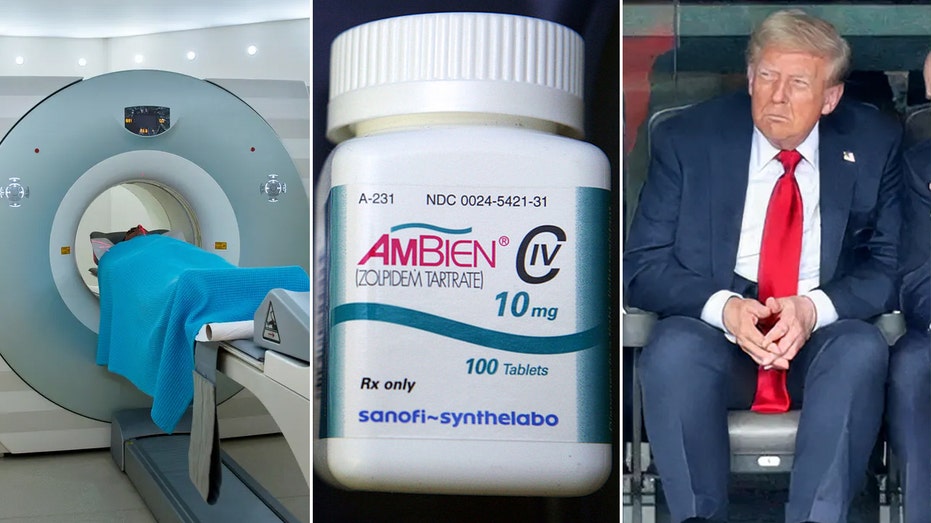Scientists Uncover Clues Behind COVID Vaccine-Linked Chronic Health Issues

Sarah Johnson
March 3, 2025
Brief
Yale researchers identify potential immunological patterns behind post-vaccination syndrome (PVS), offering hope for improved diagnosis and treatment of chronic symptoms after COVID vaccination.
For most people, the COVID vaccine is nothing more than a protective shot against a global pandemic—no drama, no fuss. But for a small group, it’s a different story. These individuals suffer from chronic symptoms lasting months or even years, a condition now being referred to by Yale researchers as "post-vaccination syndrome" (PVS).
In a breakthrough discovery, Yale scientists recently identified "potential immunological patterns" that might explain why some individuals experience this syndrome. Though the findings are still preliminary, researchers are optimistic these patterns could lead to improved diagnosis and treatment options down the line.
"This work is still in its early stages, and we need to validate these findings," said Akiko Iwasaki, Sterling Professor of Immunobiology at Yale School of Medicine. "But this is giving us some hope that there may be something that we can use for diagnosis and treatment of PVS down the road."
Symptoms of PVS, according to Yale researchers, include excessive fatigue, brain fog, exercise intolerance, insomnia, and dizziness. These symptoms often appear within days of vaccination and, unfortunately, can worsen over time.
Harlan Krumholz, a professor of cardiology at Yale, emphasized the importance of understanding and addressing these cases. "It’s clear that some individuals are experiencing significant challenges after vaccination. Our responsibility as scientists and clinicians is to listen to their experiences, rigorously investigate the underlying causes, and seek ways to help," Krumholz said.
The study analyzed blood samples from 42 individuals with PVS symptoms and 22 without. Researchers found that those with PVS had lower levels of certain white blood cells and, in cases where individuals had not contracted COVID-19, lower levels of antibodies against the SARS-CoV-2 spike protein. This was often tied to fewer vaccine doses, which meant their immune systems had less exposure to the virus or vaccine.
Interestingly, some individuals with PVS showed higher levels of the SARS-CoV-2 spike protein, which allows the virus to infect host cells. This same spike protein has been linked to an increased risk of long COVID. However, Iwasaki noted that the presence of the spike protein isn’t the sole factor. "We don’t know if the level of spike protein is causing the chronic symptoms," she said. "But it could be one mechanism underlying this syndrome."
Other factors potentially contributing to PVS include autoimmunity, tissue damage, and the reactivation of Epstein-Barr virus (EBV). It’s like the immune system gets a little too ambitious and starts creating chaos instead of protection.
Dr. Marc Siegel, clinical professor of medicine at NYU Langone Health, highlighted the significance of these findings. "In a very small percentage of those who received COVID vaccines and experienced prolonged side effects, there may be the presence of persistent spike protein," he said. He also mentioned immune disruptions, such as elevated inflammatory immune cells and a decrease in those that resolve inflammation.
Krumholz summed it up well: "Every medical intervention carries some risk, and it’s important to acknowledge that adverse events can occur with vaccines." The researchers are calling for further studies to deepen understanding and guide effective treatments. And honestly, with so many unknowns, it feels like science is only cracking the surface of this complex puzzle.
Siegel added, "This needs to be further studied in terms of understanding how common prolonged COVID vaccine side effects are and how to predict them and treat them." In the meantime, the focus remains on supporting those affected with compassion and rigorous science.
Topics
Editor's Comments
The discovery of potential immunological patterns in PVS is a huge deal—it’s like finding breadcrumbs on a trail that leads to answers. But let’s not sugarcoat it: the fact that some people endure months of discomfort after what’s supposed to protect them is a tough pill to swallow. The researchers’ cautious optimism is promising, though. Here’s hoping they can connect the dots and bring relief to those affected. Also, can we just say the immune system is a drama queen sometimes, overreacting and causing more harm than good?
Like this article? Share it with your friends!
If you find this article interesting, feel free to share it with your friends!
Thank you for your support! Sharing is the greatest encouragement for us.



